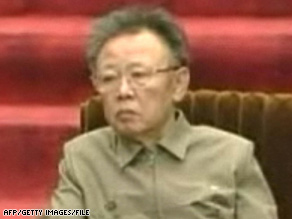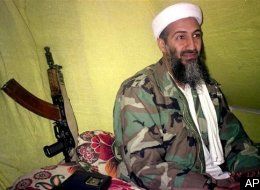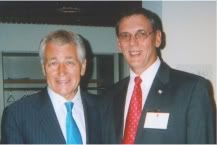Featured Posts

- Index of Psychological Studies of Presidents and Other Leaders Conducted at the Unit for the Study of Personality in Politics
- The Personality Profile of U.S. Supreme Court Associate Justice Brett Kavanaugh
- The Leadership Style of North Korean Leader Kim Jong-un
- North Korea Threat Assessment: The Psychological Profile of Kim Jong-un
- Russia Threat Assessment: Psychological Profile of Vladimir Putin
- The Personality Profile of 2016 Republican Presidential Candidate Donald Trump
- Donald Trump's Narcissism Is Not the Main Issue
- New Website on the Psychology of Politics
- Unit for the Study of Personality in Politics --- 'Media Tipsheet'
categories

- Afghanistan (228)
- Al Gore (2)
- Amy Klobuchar (4)
- Ayman al-Zawahiri (7)
- Barack Obama (60)
- Ben Carson (2)
- Bernie Sanders (7)
- Beto O'Rourke (3)
- Bill Clinton (4)
- Bob Dole (2)
- Campaign log (109)
- Chris Christie (2)
- Chuck Hagel (7)
- Criminal profiles (8)
- Dick Cheney (11)
- Domestic resistance movements (21)
- Donald Trump (31)
- Economy (33)
- Elizabeth Warren (4)
- Environment (24)
- George H. W. Bush (1)
- George W. Bush (21)
- Hillary Clinton (9)
- Immigration (39)
- Iran (43)
- Iraq (258)
- Jeb Bush (3)
- Joe Biden (13)
- John Edwards (2)
- John Kasich (2)
- John Kerry (1)
- John McCain (7)
- Kamala Harris (5)
- Kim Jong-il (3)
- Kim Jong-un (11)
- Law enforcement (25)
- Libya (18)
- Mahmoud Ahmadinejad (6)
- Marco Rubio (2)
- Michael Bloomberg (1)
- Michele Bachmann (173)
- Mike Pence (3)
- Military casualties (234)
- Missing person cases (37)
- Mitt Romney (13)
- Muqtada al-Sadr (10)
- Muslim Brotherhood (6)
- National security (16)
- Nelson Mandela (4)
- News (5)
- North Korea (36)
- Osama bin Laden (19)
- Pakistan (49)
- Personal log (25)
- Pete Buttigieg (4)
- Presidential candidates (19)
- Religious persecution (11)
- Rick Perry (3)
- Rick Santorum (2)
- Robert Mugabe (2)
- Rudy Giuliani (4)
- Russia (7)
- Sarah Palin (7)
- Scott Walker (2)
- Somalia (20)
- Supreme Court (4)
- Syria (5)
- Ted Cruz (4)
- Terrorism (65)
- Tim Pawlenty (8)
- Tom Horner (14)
- Tributes (40)
- Uncategorized (50)
- Vladimir Putin (4)
- Xi Jinping (2)
- Yemen (24)
Links

archives

- November 2021
- January 2021
- November 2020
- October 2020
- September 2020
- August 2020
- July 2020
- April 2020
- March 2020
- February 2020
- January 2020
- December 2019
- October 2019
- July 2019
- May 2019
- April 2019
- March 2019
- February 2019
- January 2019
- December 2018
- September 2018
- August 2018
- July 2018
- June 2018
- April 2018
- March 2018
- February 2018
- January 2018
- August 2017
- July 2017
- June 2017
- May 2017
- April 2017
- February 2017
- January 2017
- December 2016
- November 2016
- October 2016
- September 2016
- August 2016
- July 2016
- June 2016
- May 2016
- April 2016
- March 2016
- February 2016
- January 2016
- December 2015
- November 2015
- October 2015
- September 2015
- August 2015
- July 2015
- June 2015
- May 2015
- April 2015
- March 2015
- February 2015
- January 2015
- December 2014
- November 2014
- October 2014
- September 2014
- August 2014
- July 2014
- June 2014
- May 2014
- April 2014
- March 2014
- February 2014
- January 2014
- December 2013
- November 2013
- October 2013
- September 2013
- August 2013
- July 2013
- June 2013
- May 2013
- April 2013
- March 2013
- February 2013
- January 2013
- December 2012
- November 2012
- October 2012
- September 2012
- August 2012
- July 2012
- June 2012
- May 2012
- April 2012
- March 2012
- February 2012
- January 2012
- December 2011
- November 2011
- October 2011
- September 2011
- August 2011
- July 2011
- June 2011
- May 2011
- April 2011
- March 2011
- February 2011
- January 2011
- December 2010
- November 2010
- October 2010
- September 2010
- August 2010
- July 2010
- June 2010
- May 2010
- April 2010
- March 2010
- February 2010
- January 2010
- December 2009
- November 2009
- October 2009
- September 2009
- August 2009
- July 2009
- June 2009
- May 2009
- April 2009
- March 2009
- February 2009
- January 2009
- December 2008
- November 2008
- October 2008
- September 2008
- August 2008
- July 2008
meta

9/11 Words by Iran Leader Lead to U.S. Walkout at U.N.
U.S.: Ahmadinejad ‘delusional’ for citing those who believe U.S. was behind attacks
![]() Video
Video
U.S. walks out on Ahmadinejad speech (NBC Nightly News, Sept. 23, 2010) — At a U.N. meeting of world leaders Thursday, representatives from the United States and Britain walked out of the General Assembly chamber over remarks made by the President of Iran, Mahmoud Ahmadinejad. NBC’s Brian Williams reports. (00:28)
Reuters and The Associated Press via MSNBC.com
September 23, 2010
UNITED NATIONS — The U.S. and several European delegations walked out of the U.N. speech of Iranian President Mahmoud Ahmadinejad on Thursday after he said most people believe the U.S. government was behind the Sept. 11 terror attacks in order to assure Israel’s survival.
In his speech to the annual General Assembly, Ahmadinejad said it was mostly U.S. government officials who believed a terrorist group was behind the suicide hijacking attacks that brought down New York’s World Trade Center and hit the Pentagon.
Another theory, he said, was “that some segments within the U.S. government orchestrated the attack to reverse the declining American economy, and its grips on the Middle East, in order to save the Zionist regime” — his way of characterizing Israel.
“The majority of the American people as well as most nations and politicians around the world agree with this view,” Ahmadinejad told the 192-nation assembly.
The U.S. and some European delegations left shortly after Ahmadinejad made the remarks.
The U.S. delegation issued this statement in response: “Rather than representing the aspirations and goodwill of the Iranian people, Mr. Ahmadinejad has yet again chosen to spout vile conspiracy theories and anti-Semitic slurs that are as abhorrent and delusional as they are predictable.”
———
10/3/10 Update
Ahmadinejad Calls for U.S. Leaders to be ‘Buried’

Iranian President Mahmoud Ahmadinejad, center, waves to the media after he awarded Iran’s highest national medal to his Syrian counterpart Bashar Assad, in a ceremony in Tehran, Iran, on Saturday, Oct. 2, 2010. (Photo credit: Vahid Salemi / AP)
By Ali Akbar Dareini
![]()
October 3, 2010
TEHRAN, Iran — Iran’s president Sunday called for U.S. leaders to be “buried” in response to what he says are American threats of military attack against Tehran’s nuclear program.
Mahmoud Ahmadinejad is known for brash rhetoric in addressing the West, but in a speech Sunday he went a step further using a deeply offensive insult in response to U.S. statements that the military option against Iran is still on the table.
“May the undertaker bury you, your table and your body, which has soiled the world,” he said using language in Iran reserved for hated enemies. …
Ahmadinejad’s remarks come in sharp contrast to ones he made to Al-Jazeera Arabic news channel in August in which he offered the U.S. Iran’s friendship.
In Sunday’s speech, Ahmadinejad also questioned once more who was behind the Sept. 11 attacks in the U.S. and said they gave Washington a pretext for seeking to dominate the region and plunder its oil wealth. …
Ahmadinejad often resorts to provocative statements to lash out enemies. He has already compared the power of Iran’s enemies to a “mosquito,” saying Iran deals with the West over its nuclear activities from a position of power and he has likened the United States to a “farm animal trapped in a quagmire” in Afghanistan. …
———
The Personality Profile of Iran’s President
Mahmoud Ahmadinejad
Aubrey Immelman, Ph.D.
Unit for the Study of Personality in Politics
June 2009
![]() Video profile
Video profile
Mystical populist (NBC News Web Extra) — Watch an in-depth profile of the Iranian president: firebrand, soccer fan, and true believer in Khomeini’s Islamic Revolution. Produced by Baruch Ben-Chorin. (11:01)
Abstract
A remote psychological assessment of Iranian president Mahmoud Ahmadinejad was conducted from 2005 to 2009, mining open-source data in the public domain. Information concerning Ahmadinejad was collected from media reports and synthesized into a personality profile using the second edition of the Millon Inventory of Diagnostic Criteria (MIDC), which yields 34 normal and maladaptive personality classifications congruent with Axis II of DSM-IV.
The personality profile yielded by the MIDC was analyzed on the basis of interpretive guidelines provided in the MIDC and Millon Index of Personality Styles manuals. Ahmadinejad’s primary personality patterns were found to be Distrusting/suspicious (paranoid) and Ambitious/exploitative (narcissistic), with secondary Dominant/controlling (sadistic) and Dauntless/dissenting (antisocial) patterns. In addition, the personality profile contained subsidiary Aggrieved/unpresuming and Contentious/resolute features.
The amalgam of Distrusting (paranoid) and Ambitious (narcissistic) patterns in Ahmadinejad’s profile suggests the presence of a syndrome that Theodore Millon has labeled the fanatical paranoid — a personality composite that overlaps substantially with the construct of “malignant narcissism” described in modern reformulations of psychoanalytic theory.
Characteristically, these personalities harbor intricate fantasies, make extravagant claims, fabricate stories to enhance their self-worth, and endow themselves with illusory powers. In their own minds, they are inspired leaders, talented geniuses, holy saints, or demigods, perceiving themselves as righteous saviors standing up to the evils of the universe. Behaviorally, these personalities present as smug, arrogant and expansive, with an air of contempt toward others. In the face if adversity, delusions of grandeur constitute their chief coping mechanism.
The major political implication of the study is the inference that Ahmadinejad is relatively impervious to influence by diplomatic or economic means and not conflict averse, which heightens the risk that he would be psychologically inclined to use military force with minimal provocation to counter perceived threats to regime survival.
Appendix: Paranoid Personality Subtypes
Technical References
Immelman, A. (1999). Millon Inventory of Diagnostic Criteria manual (2nd ed.). Unpublished manuscript, St. John’s University, Collegeville, Minn.
Immelman, A. (2003). Personality in political psychology. In I. B. Weiner (Series Ed.), T. Millon & M. J. Lerner (Vol. Eds.), Handbook of Psychology: Vol. 5. Personality and Social Psychology (pp. 599-625). Hoboken, NJ: Wiley.
Immelman, A. (2005). Political psychology and personality. In S. Strack (Ed.), Handbook of Personology and Psychopathology (pp. 198-225). Hoboken, NJ: Wiley.
Immelman, A., & Steinberg, B. S. (Compilers) (1999). Millon Inventory of Diagnostic Criteria (2nd ed.). Unpublished research scale, St. John’s University, Collegeville, Minn.
Millon, T. (with Davis, R. D.). (1996). Disorders of Personality: DSM-IV and Beyond (2nd ed.). New York: Wiley.
Millon, T., & Davis, R. D. (2000). Personality Disorders in Modern Life. New York: Wiley.
(Note: Originally published on this site June 11, 2009)
———
Other studies in political paranoia on this site
The Real Trouble with Michele Bachmann (July 21, 2010)

Newscom/ZumaWire
Robert Mugabe Personality Profile (Dec. 19, 2008)
———
Other psychological profiles on this site
Kim Jong-Il Personality Profile (May 31, 2009)

Ayman al-Zawahiri Personality Profile (June 3, 2009)

Osama bin Laden Personality Profile (Dec. 6, 2009)

———
FROM THE ARCHIVES: One Year Ago — September 23, 2009
Chuck Hagel Speaks in Minnesota

Sen. Chuck Hagel and Aubrey Immelman
One year ago today, IÂ reported that former U.S. Sen. Chuck Hagel (R-Neb.), Distinguished Professor in the Practice of National Governance at Georgetown University, would deliver the Third Annual Eugene McCarthy Lecture on September 23, 2009 at St. John’s University in Collegeville, Minn.
———
FROM THE ARCHIVES: Two Years Ago — September 23, 2008
After the Primary Election: Day 14
Two years ago today, on the 14th day after losing my 2008 primary challenge against U.S. Rep. Michele Bachmann in Minnesota’s 6th Congressional District, in line with my focus on national security, I reported on security incidents and U.S. military deaths in Iraq, a bombing in Afghanistan, and violence in Pakistan.

An Iraqi mother weeps over the body of her dead 3-year-old daughter outside the morgue in the city of Baquba, northeast of Baghdad, on Sept. 22, 2008. (Photo credit: Stringer / AFP / Getty Images)
Leave a Reply
You must be logged in to post a comment.




October 13th, 2010 at 11:28 pm
[…] Ahmadinejad’s Political Paranoia (Sept. 23, 2010) […]
October 26th, 2010 at 2:08 am
[…] Ahmadinejad’s Political Paranoia (Sept. 23, 2010) […]
September 24th, 2011 at 12:02 am
[…] Mahmoud Ahmadinejad’s Political Paranoia […]
March 21st, 2012 at 6:47 am
[…] Some military specialists in the United States and in Israel who have assessed the potential ramifications of an Israeli attack believe that the last thing Iran would want is a full-scale war on its territory. Thus, they argue that Iran would not directly strike American military targets, whether warships in the Persian Gulf or bases in the region. Their analysis, however, also includes the broad caveat that it is impossible to know the internal thinking of the senior Iranian leadership, and is informed by the awareness that even the most detailed war games cannot predict how nations and their leaders will react in the heat of conflict. […]